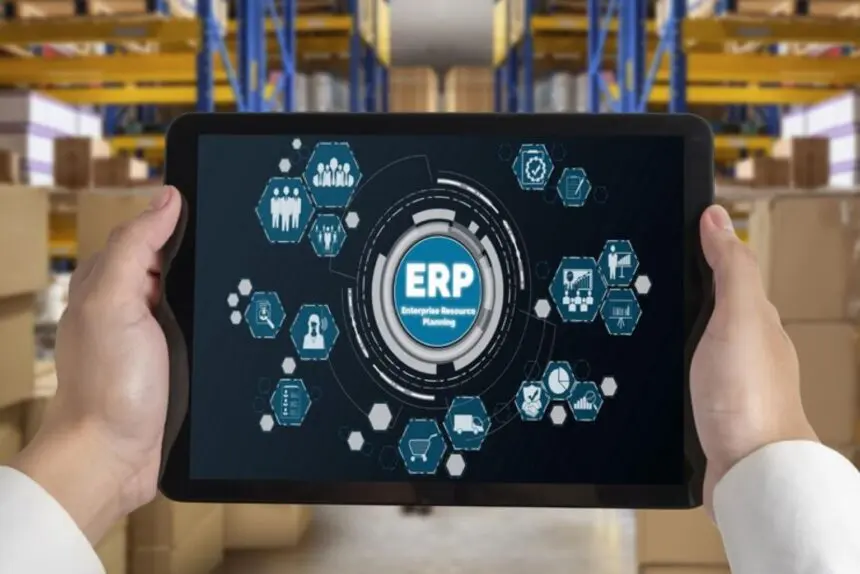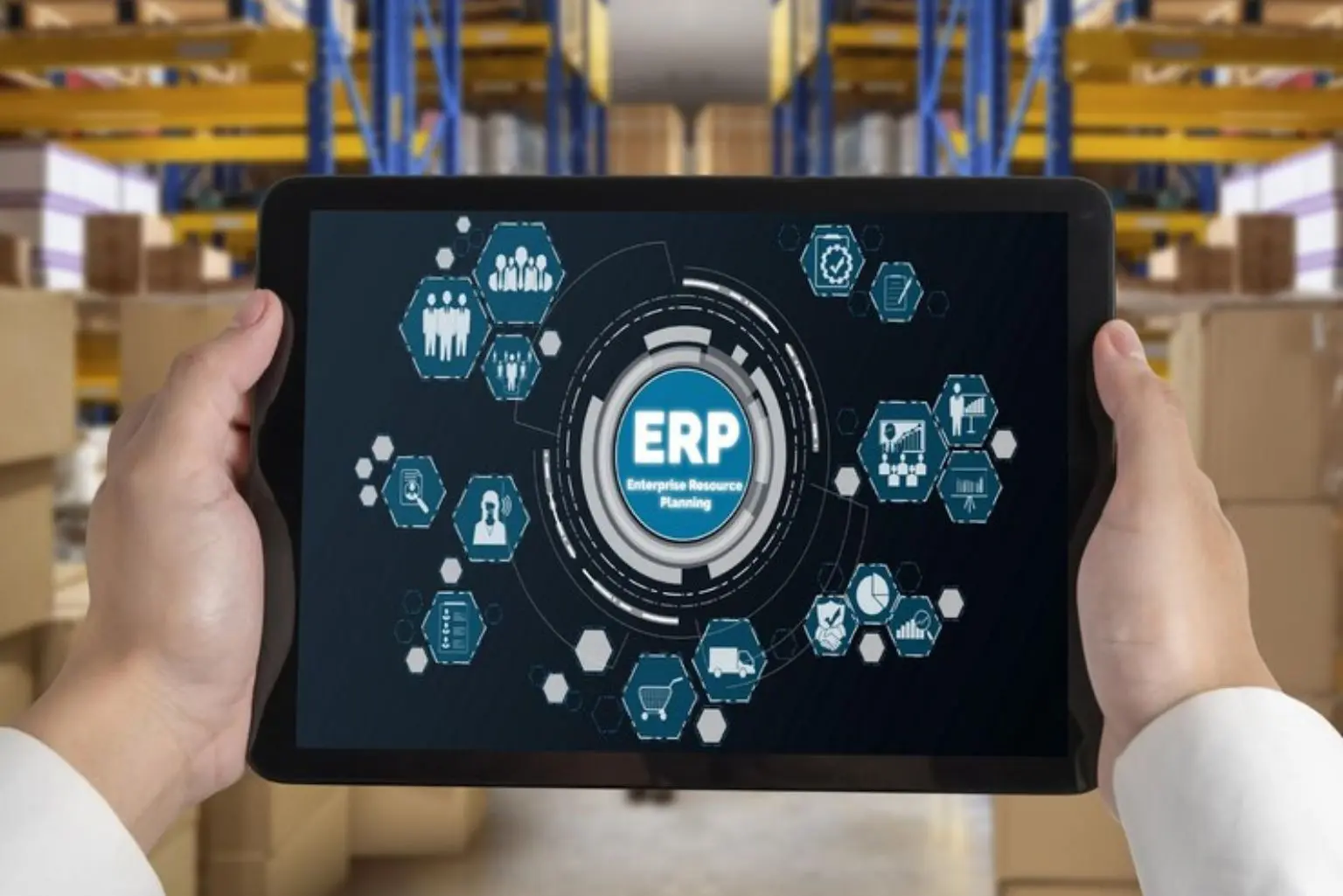
Transforming the Automotive Industry with NetSuite ERP
Transforming the Automotive Industry with NetSuite ERP

The automotive industry is experiencing a profound transformation driven by technological advancements and the demand for improved efficiency and scalability. Among the key enablers of this transformation is the implementation of Enterprise Resource Planning (ERP) systems, with NetSuite ERP in the automotive industry standing out as a leading solution. This comprehensive guide explores how NetSuite ERP revolutionizes the automotive sector by providing robust and tailored solutions, particularly for small and medium-sized manufacturers and suppliers.
Understanding ERP for Automotive Suppliers of Small & Medium Manufacturers
Definition of ERP
Enterprise Resource Planning (ERP) is an integrated application suite that manages core business processes across various functions such as finance, human resources, manufacturing, supply chain, services, and procurement. ERP systems streamline operations and enhance decision-making capabilities by centralizing data and providing a unified source of truth. ERP for automotive suppliers, ERP systems help manage complex production processes, inventory levels, and supply chain logistics efficiently.
ERP’s Role in the System for Automotive Industry
ERP systems are crucial for optimizing operations and enhancing overall productivity in the ERP system for the automotive industry. For small and medium automotive manufacturers and suppliers, automotive ERP solutions like NetSuite ERP facilitate the management of production complexities, inventory control, and supply chain coordination. By integrating diverse functions into a single platform, ERP systems ensure that all departments work harmoniously, reducing errors and improving resource utilization.
Key Features of NetSuite ERP for Small & Medium Automotive Manufacturers
Comprehensive Management
NetSuite ERP offers a comprehensive suite of management tools for the automotive sector. It encompasses:
- Production Planning: Automates the planning of manufacturing processes, helping to schedule production runs, allocate resources, and manage work orders.
- Inventory Management: Provides real-time tracking of inventory levels, automates reordering processes, and manages supply chain logistics.
- Order Processing: Streamlines order management from creation to fulfillment, including tracking and reporting.
NetSuite integrates these functions and ensures seamless coordination and operational efficiency across all departments.
Financial Management
Financial management is a core strength of NetSuite ERP, offering tools for:
- Accounting: Manages financial transactions, general ledger, and accounts payable/receivable.
- Budgeting: Provides tools for budgeting, forecasting, and financial planning.
- Financial Reporting: Generates real-time financial reports and dashboards for insightful decision-making.
These features enable automotive manufacturers to gain visibility into financial performance, manage costs effectively, and ensure compliance with regulatory requirements.
Customer Relationship Management (CRM)
NetSuite’s CRM capabilities are integral for automotive manufacturers to:
- Manage Customer Interactions: Centralizes customer data to track interactions, sales, and support issues.
- Track Sales: Monitors sales pipelines, manages customer orders, and forecasts sales trends.
- Enhance Customer Service: Provides tools to deliver exceptional customer service by understanding customer needs and preferences.
This functionality helps manufacturers build stronger customer relationships and improve overall service quality.
Benefits of Using NetSuite ERP in the Automotive Industry
Increased Efficiency
NetSuite ERP enhances efficiency by:
- Automating Routine Tasks: Reduces manual errors and speeds up order processing and inventory management processes.
- Streamlining Operations: Integrates various functions, leading to faster production cycles and improved resource utilization.
This automation and streamlining result in significant time and cost savings for automotive manufacturers.
Enhanced Visibility
NetSuite ERP provides enhanced visibility through:
- Real-Time Dashboards: Offers real-time insights into key performance metrics such as production, inventory, sales, and financial performance.
- Reporting Tools: Delivers detailed reports that support proactive decision-making and strategic planning.
Enhanced visibility helps manufacturers identify trends, address issues promptly, and make data-driven decisions.
Scalability and Flexibility
NetSuite ERP is designed to grow with the business. Its flexible architecture allows manufacturers to:
- Scale Operations: Add new functionalities and modules as the business expands.
- Adapt to Market Changes: Modify processes and operations to meet evolving market demands without disrupting existing systems.
This scalability ensures that NetSuite ERP remains a valuable asset as the business evolves.
Overall Equipment Efficiency (EAM – Enterprise Asset Management)
NetSuite’s EAM module supports automotive manufacturers by:
- Monitoring Equipment Performance: Tracks the performance of machinery and equipment.
- Scheduling Preventive Maintenance: Plans maintenance activities to minimize downtime and extend asset lifespan.
Effective EAM helps reduce operational disruptions and ensures optimal performance of manufacturing equipment.
One-Click Transactions and Automation
NetSuite ERP simplifies complex processes through:
- One-Click Transactions: Facilitates tasks such as order processing and invoicing with a single click, reducing manual effort and errors.
- Automation: Automates repetitive tasks, enhancing efficiency and accuracy.
This functionality streamlines operations and frees up resources for more strategic activities.
NetSuite vs. Traditional ERP Systems
Cloud-Based Advantage
One of NetSuite ERP‘s significant advantages is its cloud-based architecture. Unlike traditional on-premise ERP systems, NetSuite offers:
- Scalability: Easily accommodates growth without the need for extensive IT infrastructure.
- Accessibility: Provides remote access to the system from anywhere, enhancing flexibility.
- Cost Savings: Reduces the need for on-site hardware and maintenance, leading to cost savings.
These benefits make NetSuite more adaptable and cost-effective than traditional ERP systems.
Integration Capabilities
NetSuite ERP excels in integration, allowing manufacturers to:
- Extend Capabilities: Integrate with various third-party applications and systems.
- Connect with Supply Chain Partners: Seamlessly link with suppliers and other stakeholders.
- Add Specialized Modules: Incorporate additional functionalities as needed.
These integration capabilities create a cohesive ecosystem that supports a wide range of business processes.
User-Friendly Interface
NetSuite ERP is known for its user-friendly interface, featuring:
- Intuitive Dashboards: Simplifies navigation and provides easy access to crucial information.
- Customizable Views: Users can tailor the interface to their preferences and needs.
This user-friendly design enhances the overall user experience and facilitates efficient task execution.
Comprehensive ERP
NetSuite offers a comprehensive ERP solution that:
- Covers All Aspects of Manufacturing: From production planning to financial management.
- Supports End-to-End Processes: Provides a unified platform for managing all business operations.
This comprehensive approach ensures that all aspects of automotive manufacturing and supply chain operations are effectively managed.
Implementing NetSuite ERP for Your Small & Medium Automotive Manufacturing
Implementation Process
Implementing NetSuite ERP involves several key steps:
Project Planning: During this phase, it’s important to clearly define the project goals, outline the scope of work, and identify the necessary resources such as personnel, budget, and materials.
System Configuration: This step involves tailoring the system to meet the business’s specific requirements. It includes setting up software, hardware, and network configurations to ensure seamless integration with existing infrastructure.
Data Migration: Transferring existing data from the old system to the new one is critical for continuity. This may involve extracting, transforming, and loading data to ensure accuracy and integrity in the new system.
Testing and Quality Assurance: Rigorous testing is essential to validate that the system functions as expected and meets the established requirements before deployment. This may involve functional testing, performance testing, and user acceptance testing.
- User Training and Support: Educating users on effectively using the new system is crucial for successful adoption. This may involve creating training materials, conducting workshops, and providing ongoing support to ensure a smooth transition and optimal system utilization.
A structured approach ensures a smooth transition and minimizes disruptions.
Overcoming Common Challenges
Challenges in ERP implementation can include:
- Resistance to Change: Address through effective communication and involvement of stakeholders.
- Data Migration Issues: Mitigate by thoroughly planning and testing data migration processes.
- System Integration Complexities: Overcome by working with experienced implementation partners.
By proactively managing these challenges, manufacturers can achieve a successful ERP implementation.
Training and Support
NetSuite provides comprehensive training and support, including:
- Online Tutorials: Self-paced learning resources for users.
- Dedicated Support Teams: Access to support for troubleshooting and assistance.
- Ongoing Updates: Regular updates to keep the system current and functional.
These resources help manufacturers maximize the benefits of their ERP investment and ensure practical system usage.
Conclusion
NetSuite ERP stands out as a revolutionary and comprehensive solution tailored to meet the unique needs of the automotive industry. With its wide range of robust features, scalability, and enhanced visibility, NetSuite ERP empowers small and medium-sized automotive manufacturers and suppliers to effectively streamline their operations, improve efficiency, and propel their growth trajectory. By harnessing the power of NetSuite ERP, the automotive industry is equipped to navigate the intricacies of modern manufacturing adeptly and not just survive, but thrive in today’s fiercely competitive landscape.
Smart Manufacturing and Driving Digital Transformation are key benefits of implementing NetSuite ERP. For small manufacturers, this ERP system offers tailored solutions that enhance operational efficiency. Similarly, NetSuite for medical device manufacturers and ERP software for aerospace suppliers showcase its versatility across various sectors. This ERP system for small manufacturers businesses ensures that each industry can leverage NetSuite ERP for optimized performance and growth.
In summary, NetSuite ERP provides significant advantages for the automotive industry, small manufacturers, and other specialized sectors, including medical device manufacturers and aerospace suppliers, making it a pivotal tool in achieving Smart Manufacturing and driving Digital Transformation.
Frequently Asked Questions
Which ERP solution is essential for small & medium manufacturers & automotive suppliers?
NetSuite ERP for small automotive suppliers and medium manufacturers is essential due to its comprehensive features, scalability, and integration capabilities. It addresses the unique needs of the automotive industry, providing solutions from production planning to financial management.
Why does an automotive manufacturer need ERP?
An ERP system is crucial for automotive manufacturers as it centralizes data, streamlines processes, and enhances visibility. It helps manage production, inventory, supply chain, and financial operations, improving efficiency and decision-making.
How can ERP software for automotive suppliers be improved?
Automotive ERP software for suppliers can be improved by integrating advanced analytics, enhancing integration capabilities, and providing more industry-specific features. Regular updates and incorporating user feedback are also crucial for continual improvement.
What is the best automotive supplier management system?
NetSuite ERP is considered one of the best automotive supplier management systems due to its comprehensive suite of tools, cloud-based architecture, and user-friendly interface. It offers tailored solutions that effectively meet the needs of automotive suppliers.
By adopting NetSuite ERP, automotive manufacturers and suppliers can harness the power of integrated technology to enhance their operations, drive growth, and stay ahead in a rapidly evolving industry.
Categories
- 1w
- 888starz bd
- anchorage escort service
- bbrbet colombia
- book of ra it
- casino
- casino en ligne fr
- casino onlina ca
- Food and Beverage Industry
- melhor cassinos online
- mostbet GR
- mostbet norway
- NetSuite for Manufacturing Business
- online casino au
- ricky casino australia
- Smart Manufacturing
- Tech Tips for Business Owners
